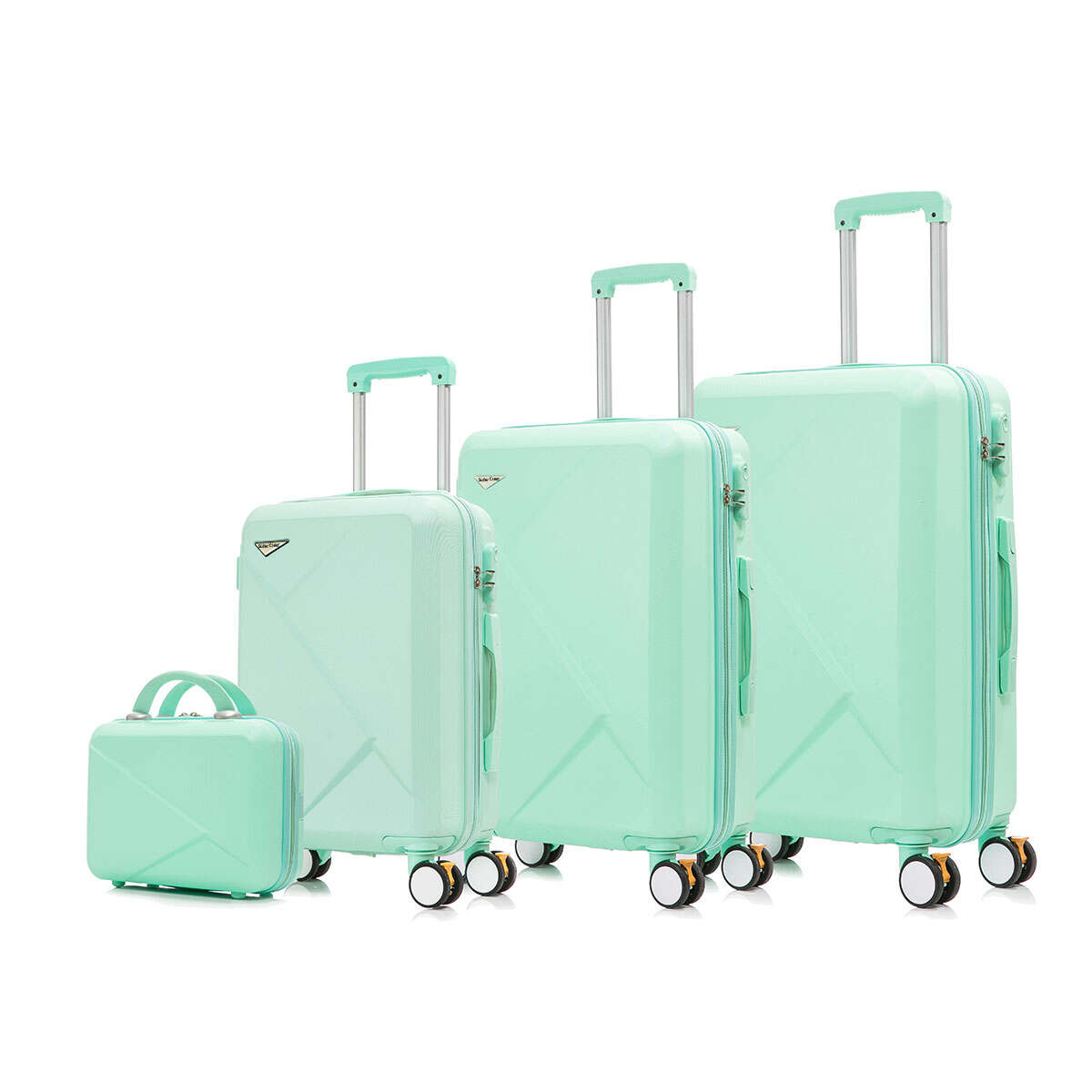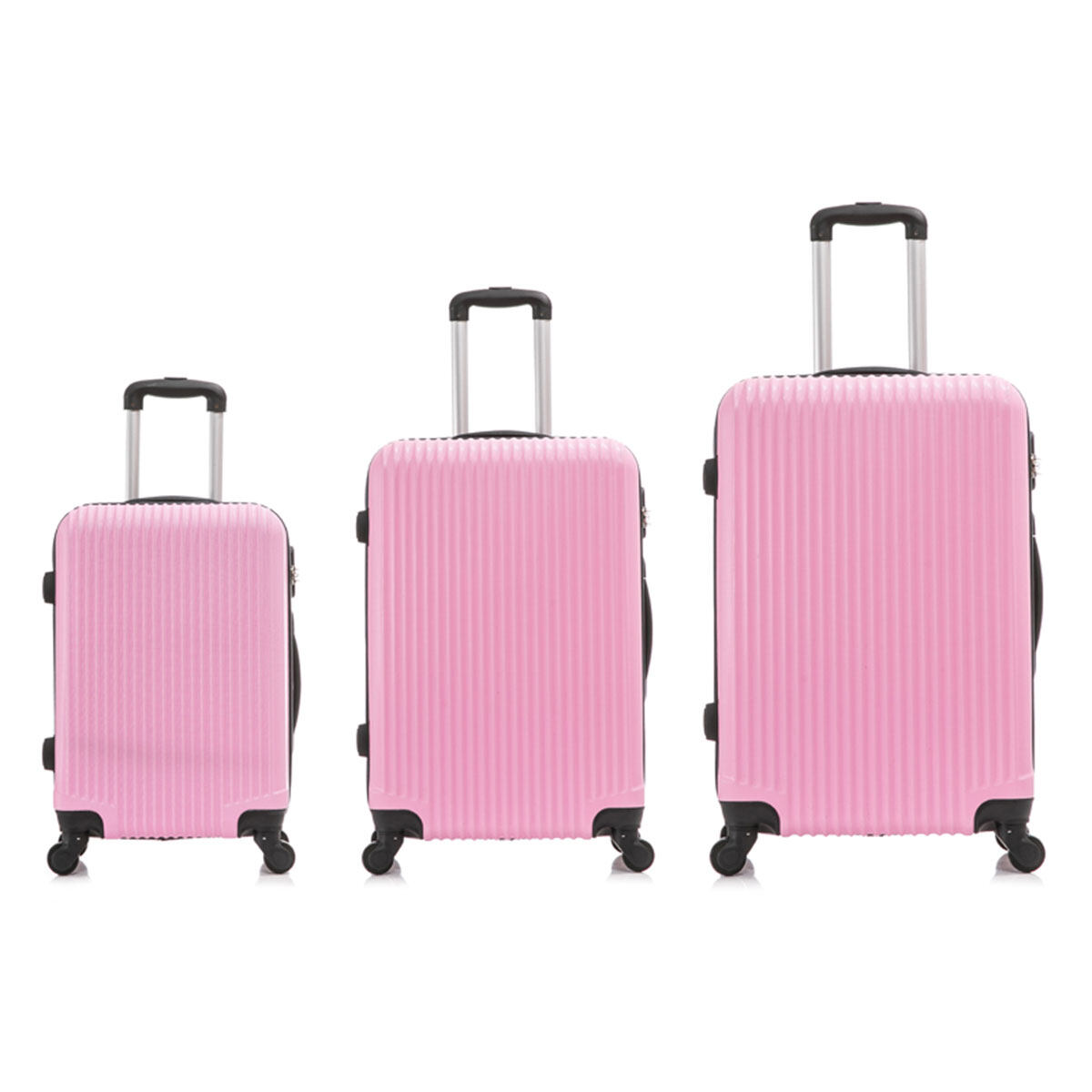Choosing the right suitcase can be tricky, especially when deciding between ABS and other hard shell materials like polycarbonate or polypropylene. Each material has its pros and cons, so the best choice depends on what you need for your travels. In this post, we'll look at the main features of
ABS luggage and compare it to other hard shell options to help you decide.
What is ABS Luggage?
ABS (Acrylonitrile Butadiene Styrene) is a popular material used in manufacturing luggage. It accounts for almost 30% of hard shell suitcases. Here are some of its key characteristics:
Pros of ABS Luggage
-
Cost-Effective: ABS is one of the most affordable hard shell materials available. It’s easier and cheaper to produce compared to polycarbonate or polypropylene, making it a great option for budget-conscious travelers.
-
Lightweight: ABS luggage is relatively lightweight, which can be a significant advantage when you’re trying to stay within airline weight limits. A typical medium-sized ABS suitcase usually weighs between 7-11 pounds.
-
Rigidity and Protection: ABS is a rigid material that offers good protection for your belongings. It can resist deformation and is difficult to shatter. This makes it ideal for protecting fragile items during travel.
-
Water Resistance: ABS is naturally water-resistant, which means your belongings are less likely to get wet if your suitcase is exposed to rain or other moisture.
Cons of ABS Luggage
-
Durability Issues: While ABS is rigid, it is not as durable as polycarbonate. It can crack under heavy impacts and is more susceptible to damage from rough handling. Over time, ABS can also degrade when exposed to UV light, leading to discoloration.
-
Weight: Although lighter than some other materials, ABS is still heavier than polypropylene. This might be a minor inconvenience for frequent travelers who need to lift their suitcases into overhead compartments.
-
Less Flexibility: ABS is a rigid material, which means it doesn’t have the same flexibility as polycarbonate or polypropylene. This can make it more prone to cracking under pressure.

Comparing ABS to Other Hard Shell Materials
Polycarbonate
Polycarbonate is another popular hard shell material known for its durability and flexibility. Here’s how it compares to ABS:
-
Pros: Polycarbonate is incredibly tough and can withstand more impact than ABS. It’s also lighter than ABS and offers better protection against UV rays. Polycarbonate luggage is more flexible, which means it can absorb impacts without cracking.
-
Cons: Polycarbonate luggage is generally more expensive than ABS. It’s also heavier than polypropylene, which might be a concern for some travelers.
Polypropylene
Polypropylene is another hard shell material that offers unique benefits:
-
Pros: Polypropylene is lightweight and highly flexible, making it less likely to crack under pressure. It’s also more resistant to scratches and chemicals, which means it will look newer for longer.
-
Cons: Polypropylene is not as rigid as ABS, which means it might not protect fragile items as well. It’s also more expensive than ABS.
Which Material is Right for You?
Choosing between ABS and other hard shell materials depends on your specific travel needs:
-
Budget Travelers: If you’re looking for an affordable option that still offers good protection, ABS is a great choice. It’s cheaper than polycarbonate and polypropylene.
-
Frequent Flyers: For those who travel often and need a durable suitcase, polycarbonate might be the better option. Its superior impact resistance and flexibility make it more resilient to rough handling.
-
Lightweight Needs: If you’re concerned about weight, polypropylene is the lightest option. However, it’s also more expensive than ABS.
Conclusion
In summary, ABS luggage is a solid choice for budget-conscious travelers who need a lightweight and rigid suitcase. However, it’s not as durable as polycarbonate and lacks the flexibility of polypropylene. If you’re willing to spend a bit more for better durability and flexibility, polycarbonate is a great option. For the lightest option, consider polypropylene, but be prepared to pay a higher price.


